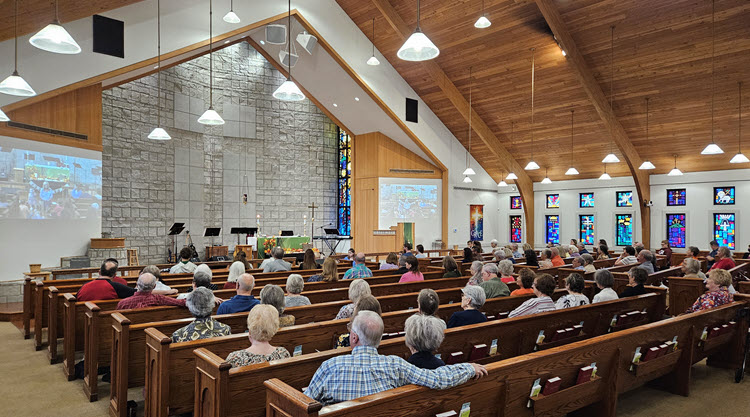This morning I preached the second message in a series based on Debie Thomas’ new book A Faith of Many Rooms: Inhabiting a More Spacious Christianity (Broadleaf, 2024).Today, we focused on sin and salvation.

Sermon
My message, “Struggling with S Words” was based on Romans 6:1-14 and Mark 2:13-17.
Sin and Salvation
You can watch the sermon below or read the manuscript.
Excerpt
Let me begin with a big philosophical question: What problem does religion solve? Notice I said religion, not Christianity.
While you continue to chew on that, I wonder about your answer to this follow up question: do all religions seek to solve the same problem?
Searching for answers to these questions I turned to the best-selling author Dr. Stephen Prothero who served for many years as professor of religion at Boston University.
In his book, God is Not One, he presents a simple approach to understanding religions that identifies each religion’s problem, solution, and the techniques used to move from the problem toward the solution. His model shows us that each religion is focused on a different problem. For example,
- Confucianism: the problem is chaos / the solution is social order
- Buddhism: the problem is suffering / the solution is awakening
- Islam: the problem is pride / the solution is submission
- Judaism: the problem is exile / the solution is return to God
- Christianity: the problem is sin / the solution is salvation
Siblings in Christ, it appears we have a sin problem. Whether or not you agree that the problem Christianity seeks to solve is sin, surely you recognize the central role the ideas of sin and salvation have played for more than 2,000 years. And, I imagine you’ve heard about faith and good works, which are the techniques Prothero believes Christians have used to move from their problem toward their solution.
And, so, today, as we find our way toward a more spacious Christianity, I invite you to reconsider and perhaps even to struggle a bit with the S words of sin and salvation. Does anyone here besides me struggle a bit with the word sin or perhaps the word salvation or possibly with both of them? If it feels like these and other religious words you grew up with no longer sound the same or carry the same meaning, you may be on to something.